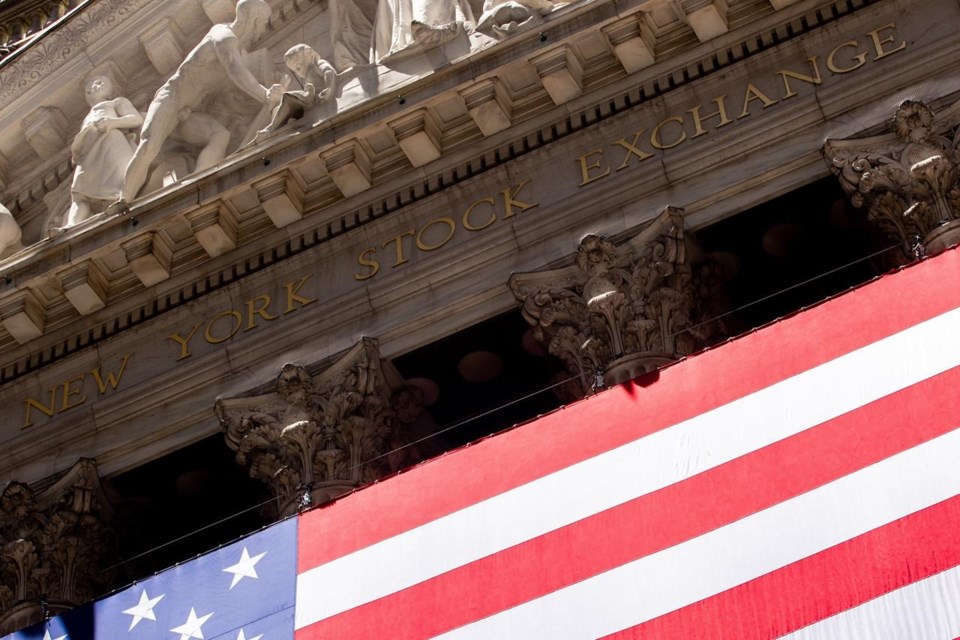NEW YORK (AP) — Stocks are churning slightly higher on Wall Street after a highly anticipated report showed inflation accelerated across the country last month, but not by much more than expected. The S&P 500 was up 0.2% in early trading Wednesday. The Dow was up 119, and the Nasdaq composite was up 0.2%. The report said U.S. consumers paid prices last month that were 3.7% higher than a year earlier, up from July’s inflation rate of 3.2%. Much of the acceleration was because of higher fuel costs, which can swing very sharply and quickly. Underlying inflation trends still look to be pointing toward continued moderation.
THIS IS A BREAKING NEWS UPDATE. AP’s earlier story follows below.
Wall Street pointed slightly lower early Wednesday ahead of a key report on U.S. inflation that could sway the Federal Reserve's upcoming decision on interest rates.
Futures for the Dow Jones Industrial Average edged 0.1% lower before the bell, while the S&P 500 are essentially unchanged.
Economists expect Wednesday's report from the Labor Department to show that consumer prices were broadly 3.6% higher last month than a year earlier. That's up from July's 3.2% and June's 3%, which was the lowest in more than two years.
Fed policymakers remain concerned about inflation, even though it has fallen considerably from highs above 9%. The Fed's interest rate hiking campaign, which has raised borrowing rates to the highest level in 22 years, was supposed to cool the economy and job market. But the labor market remains tight and consumer spending fairly strong.
The Fed's next two-day meeting is scheduled to wrap up next Wednesday, when policy makers will announce their decision on interest rates.
Thursday will bring reports about inflation at the wholesale level and sales at U.S. retailers. Strong spending by U.S. households has helped keep the U.S. economy humming, but it could also be encouraging companies to keep trying to raise their prices further.
Stocks have been see-sawing in recent weeks amid the revived uncertainty about whether the Federal Reserve is done with its avalanche of hikes to interest rates. The central bank has raised rates 11 times in the since March of 2022, trying to get inflation back down to its target of 2%.
High interest rates work to undercut inflation by slowing an entire economy and knocking down prices for stocks and other investments.
While inflation has subsided from last year's peak, a recent surge in oil prices has undermined that process and could compel the Federal Reserve to act again to tame inflation, Stephen Innes of SPI Asset Management said in a commentary.
“This scenario underscores the delicate balance between energy costs, inflationary pressures, and the central bank’s monetary policy actions, which can have profound implications for the broader economic landscape,” he said.
Ford shares were up for the second day in a row after the automaker unveiled the latest version of the F-150 pickup Tuesday night ahead of Detroit's auto show that opens Wednesday. Ford rose 1.5% in premarket trading Wednesday after a 1.9% jump the previous day.
Drugmaker Moderna rose more than 4% early after it reported positive results for its mRNA flu vaccine.
In Europe at midday, Germany's DAX shed 0.8%, the CAC 40 in Paris declined 0.7% and the FTSE 100 in London gained 0.4%.
In Asian trading, Hong Kong’s Hang Seng lost 0.1% to 18,009.22 and the Shanghai Composite index sank 0.5% to 3,123.07.
Japan’s Nikkei 225 index fell 0.2% to 32,706.52, while the Kospi in Seoul edged 0.1% lower, to 2,534.70. Australia’s S&P/ASX 200 gave up 0.7% to 7,153.90.
Shares rose in India and Taiwan but fell in Southeast Asia.
In other trading Wednesday, U.S. benchmark crude climbed 41 cents to $89.25 a barrel in electronic trading on the New York Mercantile Exchange. It jumped $1.55 on Tuesday.
Brent crude oil, the international pricing standard, picked up 39 cents to $92.45 a barrel.
The U.S. dollar rose to 147.42 Japanese yen from 147.08 yen late Tuesday. The euro slipped to $1.0742 from $1.0755.
On Tuesday, the S&P 500 lost 0.6% and the Dow Jones Industrial Average slipped 0.1%. The Nasdaq composite dropped 1%.
——
Elaine Kurtenbach And Matt Ott, The Associated Press



